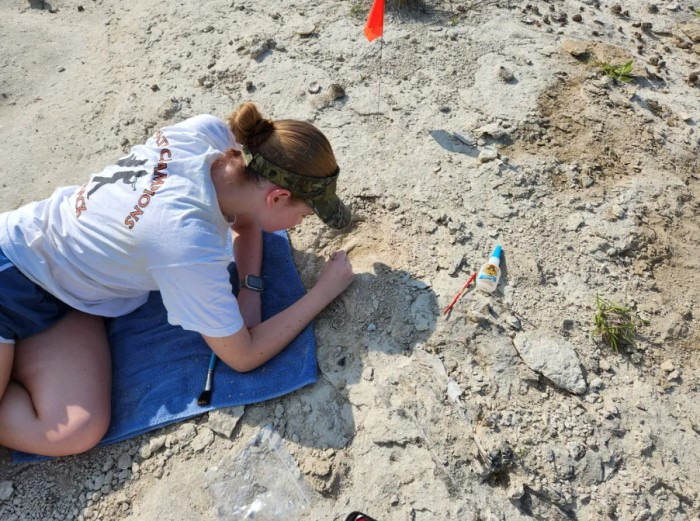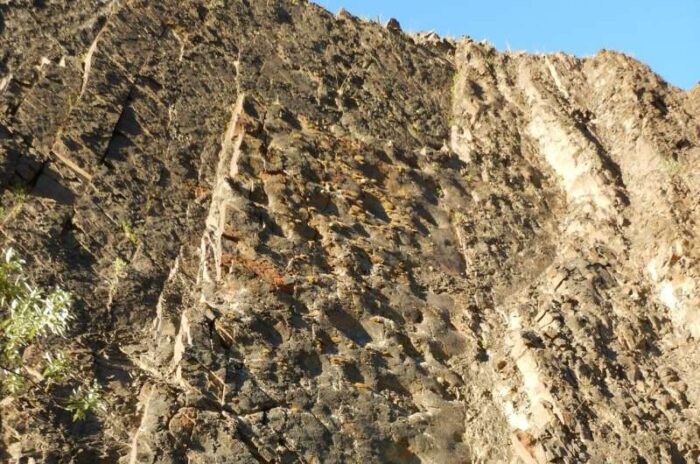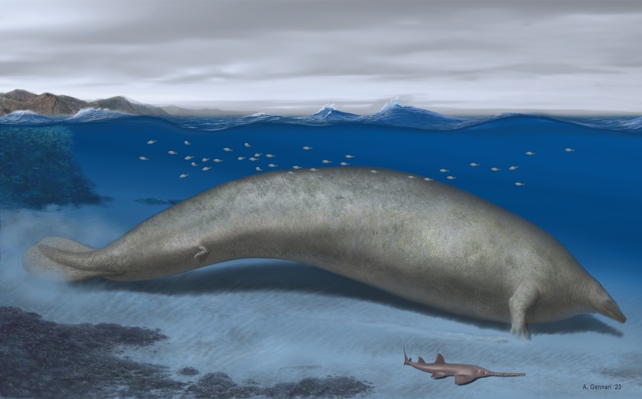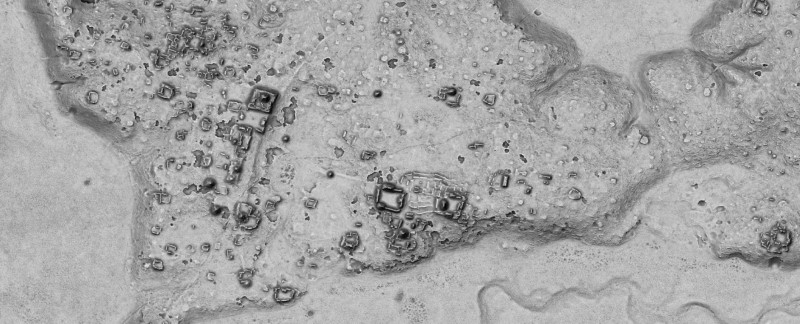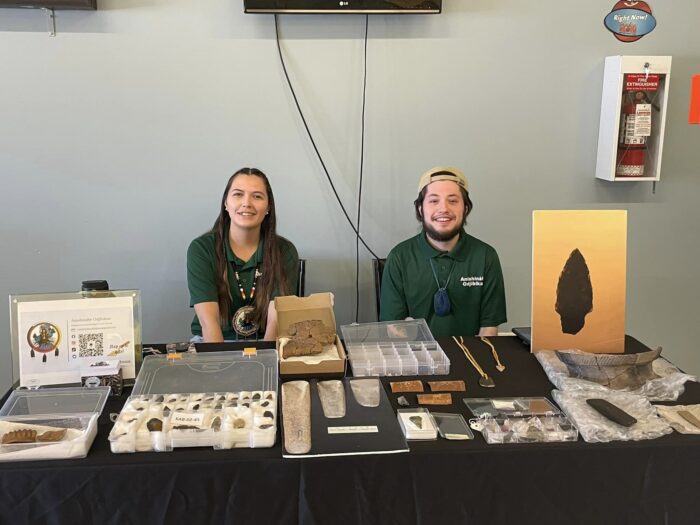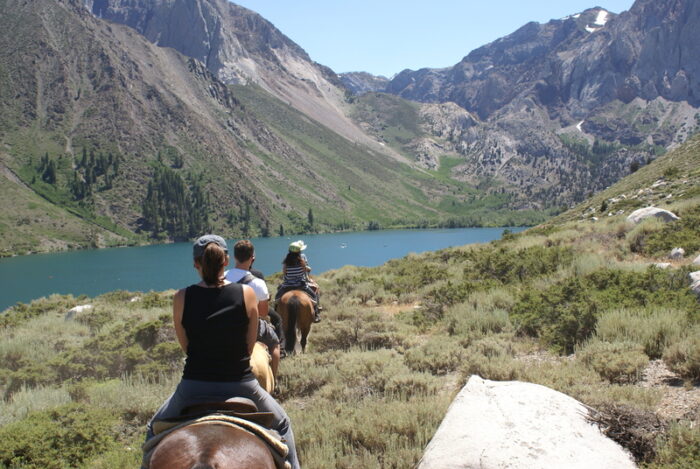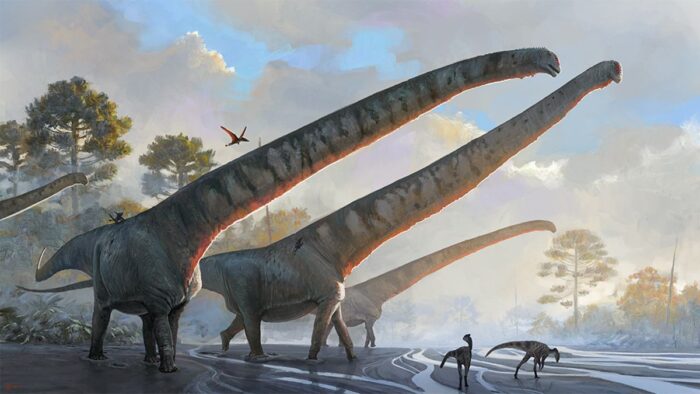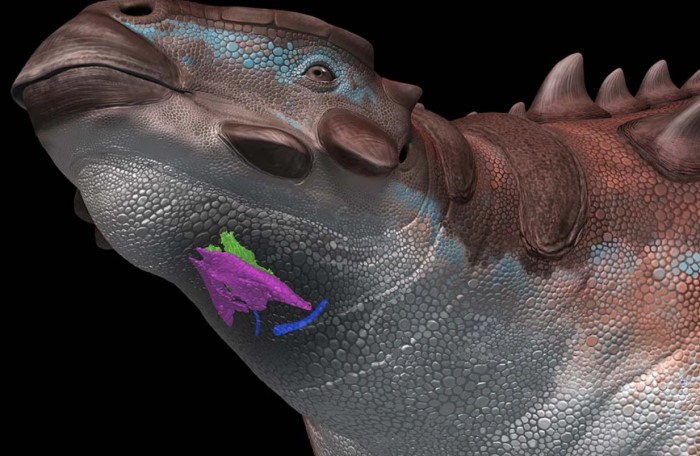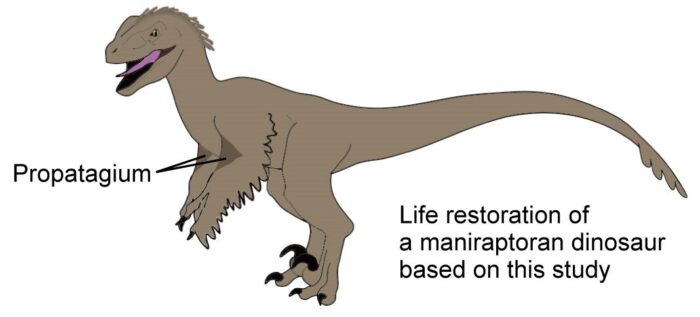As we all know, climate change is changing the face of the planet. And while most of these changes are not welcome, it is an exciting time if you study any kind of history.
Whether your field is archeology (ancient human civilizations), geology (the planet), or palaeontology (ancient life), melting ice and permafrost, and shifting lands and waters are revealing things that have been hidden for centuries, millennia, even whole eons. We're talking Viking and Roman artifacts, mummies of cave lions, woolly rhinos, and dogs, and so much more.
The latest example of this is an archeological dig in northern Iraq. There, a receding reservoir near the city of Mosul, briefly revealed the ruins of a 3,400-year-old city!
Look what we found!
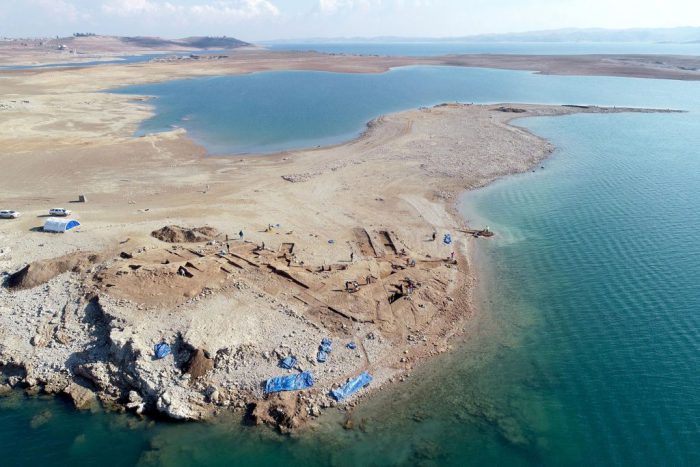
Another aerial view of the Kemune dig. (Universities of Freiburg and Tübingen, KAO)
Known today as Kemune, this archeological site is thought to be the location of Zakhiku, a stronghold in the Bronze Age Mittani Empire.
Mittani existed between 1600 and 1260 BCE. It was around at the same time as the Assyrian, Babylonian, and Egyptian empires. It had its own language and religion (Hurrian), and was a powerful kingdom for several centuries before eventually being taken over by the Assyrian Empire.
One of the very curious things about Mittani is that archeologists haven't found much native text describing its history. In other words, the descriptions of it tend to come from history written by scholars from other empires.
This makes a find like this extra special. Archeologists have the chance to see if what is in the ruins match the words of their neighbours—and often enemies!
Working fast
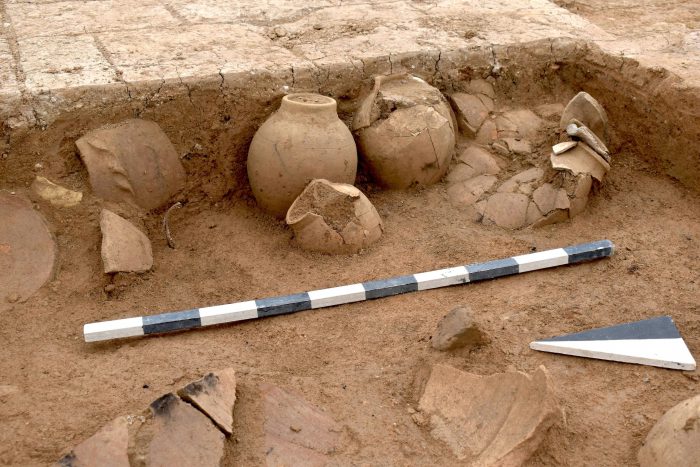
A collection of jars from the site. Jars were the most common ways to store valuable goods at the time. (Universities of Freiburg and Tübingen, KAO)
Not only was this chance rare, it was also short-lived!
The only reason that archeologists had the chance to dig here is because a fierce drought raised the demand for water from the reservoir for farmers and communities. This then drained the water to a level that is low enough that the ruins were exposed. Now that the reservoir has been refilled, those ruins are back underwater!
But the archeologists were also ready for this chance.
Back in 2018, a similar drought exposed some of the ruins, giving experts a clue that this unique find had been hidden underwater for millennia. As the waters began receding in December 2021, they swooped in to finish what they started, finding more than they had ever dreamed that they would.
Palace, forts, store rooms, and writing!
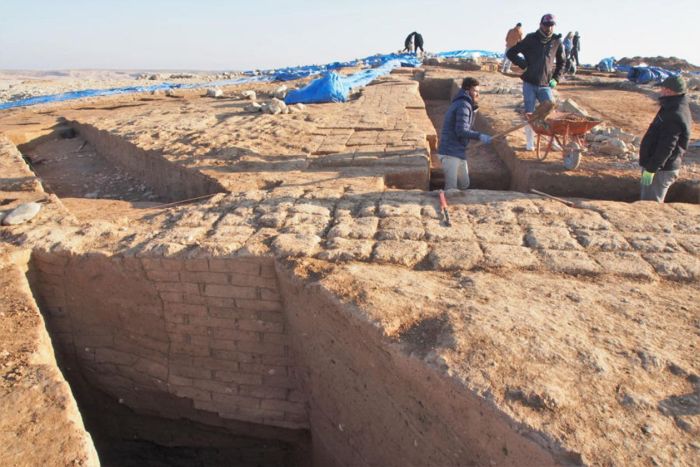
An ancient wall. What might this building have been for? (Universities of Freiburg and Tübingen, KAO)
The multi-national team of Iraqi and German researchers spent January and February in a frenzy. In a race against time, they mapped out large portions of the ruins, uncovering remains of a palace, a tower, fortifications, a multi-level storage building and more.
Their dig was enough to prove that the city was truly a busy one at its peak. Zakhiku might have remained strong for longer, too, except that an earthquake destroyed much of the city around 1350 BCE.
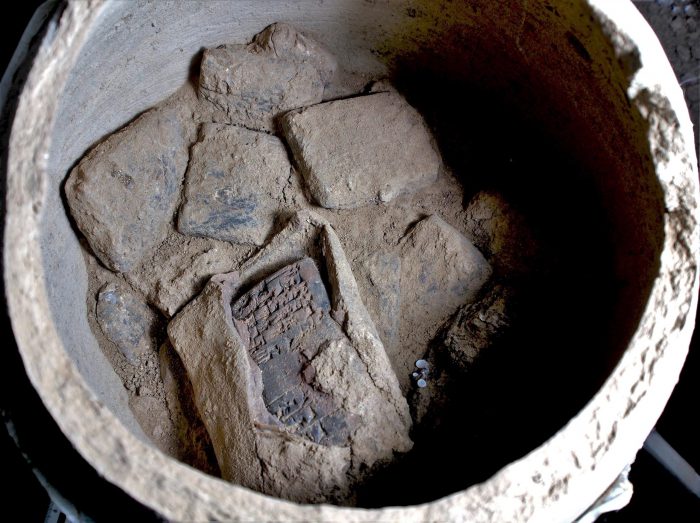
Finding artifacts with writing is very exciting! (Universities of Freiburg and Tübingen, KAO)
And while all of these artifacts and ruins are exciting, maybe the most incredible find was a large jar full of cuneiform clay tablets. This is a style of writing that was common in several empires of the ancient Middle East.
Might these tablets contain some new insights into the lives of the people of the Mittani Empire? The archeologists behind this dig are thrilled to have the chance to find out. And they've worked with the government to protect the site so that it can be studied even further the next time the waters of the Mosul reservoir recede.
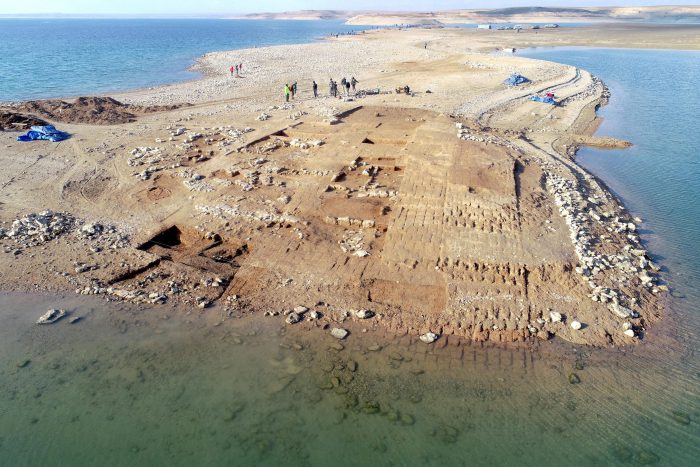 The narrow patch of land where archeologists excavated the ruins of Zakhiku. (Universities of Freiburg and Tübingen, KAO)
The narrow patch of land where archeologists excavated the ruins of Zakhiku. (Universities of Freiburg and Tübingen, KAO)
